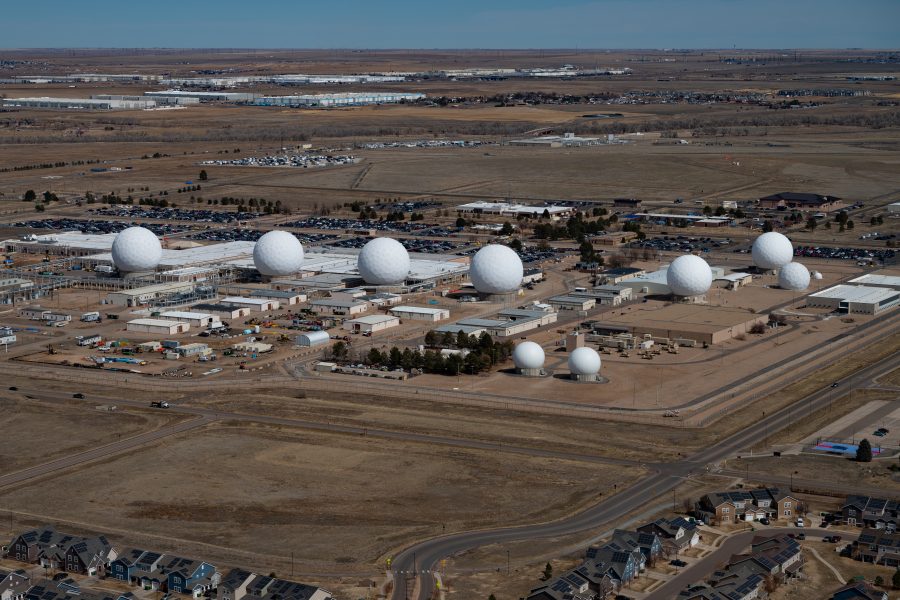Disclosures about a new Russian anti-satellite weapon have thrust military space capabilities into the international spotlight and created a sensation among lawmakers, media, and the public.
On Feb. 14, Rep. Mike Turner (R-Ohio), the chair of the House Intelligence Committee, issued a statement warning of a “serious national security threat.” A day later, White House National Security Council spokesman John Kirby confirmed media reports that the danger involved an anti-satellite weapon the Russians have been developing.
While Kirby noted that the system is not yet operational, he also noted that launching it would violate an international treaty that bans the deployment of nuclear weapons in space. “It would be space-based and it would be a violation of the Outer Space Treaty to which more than 130 countries have signed up to, including Russia,” Kirby said.
Though unclassified details about Russia’s new anti-satellite system have been scarce, the threat to U.S. satellites is not a new one. The Space Force has been warning about the growing danger for years.
“We’re seeing continual development and operationalizing” of nefarious space capabilities by Russia and China, Chief of Space Operation Gen. B. Chance Saltzman said Feb. 13 at the AFA Warfare Symposium, before the most recent public revelations. “Very concerning. Extremely concerning. Give me another adjective.”
One word Saltzman did not use was “surprise.” The Space Force has increasingly emphasized that space is now a contested domain and that both Russia and China has been working on weapons to threaten America’s satellites. It has often cited Russia’s 2021 anti-satellite (ASAT) test as an example of “counterspace” capabilities. In turn, the U.S. committed in 2022 to not conduct direct-asset kinetic ASAT tests and has pushed for a global ban on such tests—so far, without success.
The U.S. has taken some important steps to make its space assets harder to target. The Space Development Agency is launching many small satellites into low-Earth orbit (LEO), part of a general philosophy to move away from relying on a relatively small number of satellites in other orbits, such geosynchronous-Earth orbit (GEO), which the USSF considers increasingly risky. The Space Force now views itself as a fighting force, a mission that was underscored with the Department of the Air Force’s re-optimization efforts.
“Previously, in a simpler time, you would put a large, exquisite satellite in space that had lots of capabilities,” Pentagon Press Secretary Air Force Maj. Gen. Patrick S. Ryder said Feb. 15. “That’s a single point of failure versus going to much more numerous smaller satellites that are less expensive, that can be replaced more quickly, thus making it harder to take down a system, you know, in one fell swoop.”
But Russia and China are not standing still either.
“Russia continues to train its military space elements, and field new anti-satellite weapons to disrupt and degrade U.S. and allied space capabilities,” the Office of the Director of National Intelligence said in its 2023 threat assessment. “It is developing, testing, and fielding an array of nondestructive and destructive counterspace weapons—including jamming and cyberspace capabilities, directed energy weapons, on-orbit capabilities, and ground-based ASAT capabilities—to try to target U.S. and allied satellites.”
Russia’s new anti-satellite system has become a growing concern within the White House. “Our general knowledge of Russian pursuit of this kind of capability goes back many, many months, if not a few years,” Kirby said. “But only in recent weeks now has the intelligence community been able to assess with a higher sense of confidence exactly how Russia continues to pursue it.”
No arms control talks between the U.S. and Russia are currently underway, and the prospects of negotiating an end to the Russian threat are not good, experts say. Asked about Kremlin charges that disclosures about its anti-satellite weapons are a White House ploy to build Congressional support for aid to Ukraine, Kirby gave a one word answer.
“Bollocks,” he said.
But the situation has highlighted another need: an independent military service focused on space, Ryder said.
“In light of growing threats by strategic competitors in space, U.S. Space Command and the U.S. Space Force were established several years ago to maintain a dedicated focus on this vital domain and to ensure that we have trained and prepared military space professionals whose mission it is to protect and defend America’s interest in space,” Ryder said. “We will take appropriate action in defense of the nation.”

